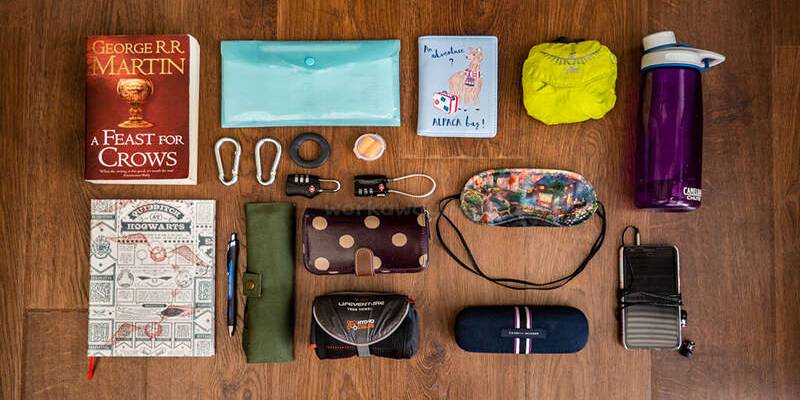Distracted eating, the act of consuming food while focusing on other activities, is increasingly linked to weight gain. Whether scrolling through smartphones, watching television, or working, this habit often leads to overeating. By dulling awareness of hunger and fullness signals, distracted eating can disrupt healthy eating patterns, encouraging unhealthy weight gain over time.
What is Distracted Eating?

Distracted eating is the eating while engaged in other activities that in turn occupy one’s attention and distract one from paying heed to eating. Common distractions include:
- Watching television
- Browsing social media
- Driving
- Working on a computer
- Playing video games
- Talking on the phone
If we pay scant attention to what we are eating, the brain does not get to experience food in full. Therefore we may eat too much, dismiss the cues our bodies provide that we are full, and be hungry again within a short time.
How the Brain Responds During Meals?
The brain plays a key role in regulating appetite and fullness. When we eat attentively, the brain processes:
- The visual appearance of food
- The smell and taste of food
- The texture and sound (like crunching)
- The emotional satisfaction of the experience
All these sensory cues help signal when we are full. However, when attention is elsewhere, this process is disrupted. Studies show that distraction reduces memory of food consumption, which leads to eating more during subsequent meals.
The Science Behind Distracted Eating and Weight Gain:
1. Overeating Due to Missed Satiety Signals
When you're focused on a screen or task, your attention is not on your body’s hunger and fullness signals. You may eat faster and bypass the natural feedback loop that tells your brain, “I’m full.” This often leads to consuming extra calories without realizing it.
2. Poor Food Choices
Distractions can lead to impulsive eating. When not focused, people are more likely to choose:
- Highly processed snacks
- Sugary foods
- Fast meals with minimal nutritional value
These items are often high in calories but low in essential nutrients, contributing to weight gain and low energy levels.
3. Lack of Food Memory
Memory plays a surprising role in how much we eat. If you can’t recall what or how much you ate, you’re more likely to eat again soon. Distracted eaters often forget what they’ve consumed, leading to frequent unnecessary snacking or larger meals later in the day.
4. Eating Faster
Multitasking during meals encourages faster eating. The quicker you eat, the less time your body has to register fullness. Slow, mindful eating allows hormones like leptin (which signals satiety) to activate properly. Fast eaters bypass this process, often eating well beyond their energy needs.
5. Emotional Eating
Many distractions, especially digital ones, can trigger emotional responses. Scrolling through stressful news or emails may lead to stress-related eating, even when not physically hungry. Emotional eating combined with inattention amplifies the risk of caloric overconsumption.
Common Situations That Lead to Distracted Eating:
- Eating in front of the television: Research shows that people consume significantly more calories when watching a screen compared to eating without visual entertainment.
- Snacking while working: Many professionals eat at their desks, which often leads to continuous nibbling without portion control.
- Using phones during meals: Texting or browsing during meals divides attention and diminishes meal satisfaction.
- Social distractions: Eating in group settings can also lead to overeating, especially when conversation takes priority over mindfulness.
The Long-Term Impact of Distracted Eating:
The effects of distracted eating go beyond short-term calorie intake. Over time, consistent inattention during meals may lead to:
- Increased body weight: Eating too quickly or consuming calorie-dense convenience foods can lead to overeating, which, over time, may result in weight gain.
- Impaired digestion due to rushed eating: When meals are eaten in a hurry, the body doesn't have enough time to properly break down food, leading to issues like bloating, discomfort, or indigestion.
- Unbalanced nutrition, especially when choosing convenience foods: Relying on quick, processed meals often means missing out on essential nutrients like fiber, vitamins, and minerals, which are crucial for overall health.
- Disrupted metabolic cues, making hunger and fullness harder to assess: Eating too quickly or mindlessly can interfere with the body's natural signals that help regulate appetite, leading to overeating or unnecessary snacking.
- Higher risk of metabolic issues, such as elevated blood sugar levels or increased fat storage: Poor eating habits, such as consuming high-sugar or high-fat foods, can contribute to long-term health risks, including insulin resistance, diabetes, or heart disease.
These factors, compounded over time, create a strong link between distracted eating and long-term weight management challenges.
Mindful Eating: The Antidote to Distraction:

Mindful eating is the practice of being fully present during meals. It involves paying close attention to the flavors, textures, and sensations of food while listening to the body’s cues. It has been linked to improved digestion, better portion control, and healthy weight management.
Key Principles of Mindful Eating:
- Eliminate Distractions: Turn off devices like phones, tablets, or TVs to fully focus on your meal. Eating at the dining table instead of in front of a screen helps create a more intentional and mindful eating environment, allowing you to truly enjoy your food.
- Chew Slowly and Thoroughly: Take your time to chew each bite properly. This not only helps improve digestion by breaking down food more effectively but also gives your body enough time to recognize when you’re full, reducing the chances of overeating.
- Use All Senses: Engage all your senses while eating. Observe the vibrant colors of your meal, take in its aroma, and notice the different textures and flavors as you taste it. This sensory awareness enhances your eating experience and helps you connect more deeply with your food.
- Listen to Your Body: Pay close attention to your hunger and fullness cues. Eat when you feel hungry, and stop eating when you reach a point of comfortable fullness, avoiding the discomfort of feeling overly stuffed. This practice encourages a healthier relationship with food.
- Appreciate Each Bite: Take a moment to feel gratitude for your meal, whether it’s for the effort that went into preparing it, the farmers who grew the ingredients, or simply the chance to nourish your body. Gratitude can turn eating into a meaningful and satisfying experience, leaving you feeling more fulfilled.
Conclusion:
Distracted eating is a modern behavior that silently undermines our health goals. It bypasses the body’s natural hunger and fullness cues, encourages overconsumption, and disconnects us from the joy of eating. The good news is that the solution doesn’t involve extreme dieting or complicated regimens. By simply bringing attention back to the plate, choosing wholesome foods, and respecting your body’s signals, you can make substantial progress toward healthier eating habits.












